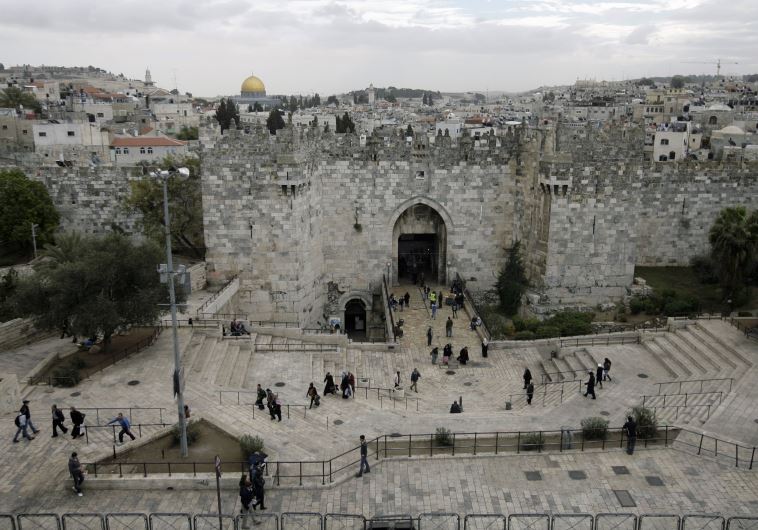Into the Fray: What must be done - Part 2: Beyond basics
Rather than reach out to the increasingly irrelevant Mahmoud Abbas, Israel should cut all ties with him.
 Passers-by walk near the Damascus Gate in Jerusalem's Old City [File[(photo credit: REUTERS/AMMAR AWAD)
Passers-by walk near the Damascus Gate in Jerusalem's Old City [File[(photo credit: REUTERS/AMMAR AWAD)